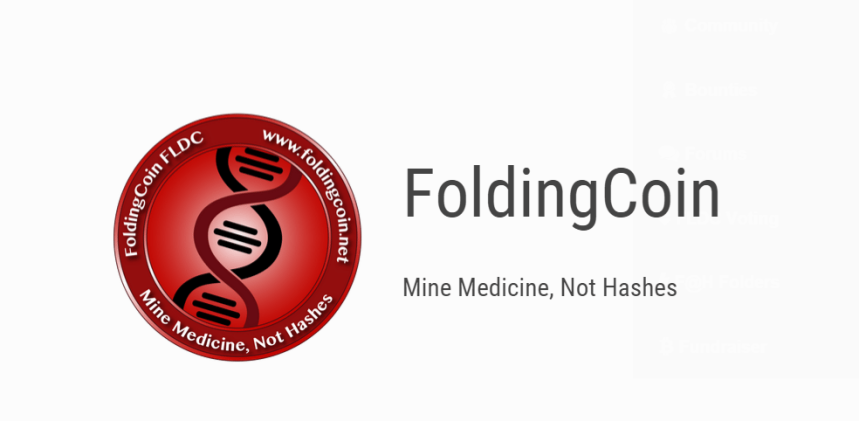Since the dawn of digital currency we have always been bothered about the monetary value associated with it. A lot of processing power and electricity is being spent on mining to process the transactions happening over the bitcoin network. Miners have indulged in the process of finding sequences of low hash value with the sole purpose of gaining miner’s fee.
Bitcoin value is said to be related to the network size and the number of transactions that happen over the network. Now, what if the same processing power, or even a part of the processing power is diverted for a similar mining process with a social or a scientific cause associated with it. Well, there is one such option available for those who would want to use their processing power for good (I am not saying bitcoin is bad… No way! Bitcoin is awesome too, but in its own way). Folding@Home, a project by Stanford University started in 2000 has now adopted blockchain technology to create something called FoldingCoin.
Mining for the benefit of mankind
Folding@Home initiative by Stanford allowed individuals to contribute their spare processing power to simulate complex protein folding. The project didn’t involve any rewards, but just points to keep track of every individual’s contribution to research which can potentially lead to the creation of live saving drugs and treatments for the worst diseases mankind has known. The FoldingCoin can be considered as Folding@Home version 2.0.
Built on Counterparty, FoldingCoin with the symbol FLDC is distributed on a schedule and offered only to those who contribute cycles to Folding@Home project. Once received, people can transfer FoldingCoin to others over bitcoin blockchain and Counterparty protocol. The computational power used in mining FoldingCoin will be harnessed for scientific projects.
In order to mine FoldingCoin, one has to download FoldingCoin client over Folding@Home network and configure accordingly. Once the rig is set up, people can use their mining rig’s processing power on Work Units, which are basically protein folds sent to the client machine by the network. There are FoldingCoin mining groups, just like mining pools on the network which one can join and start cracking the Work Units. Every morning, the user’s wallet will be credited with FoldingCoins proportional to the amount of work done the previous day by the participant. These credits can be sent to others or exchanged for other Counterparty based altcoins.
Digital currency and blockchain technology has a lot more to offer than just money. It can also be part of a bigger picture, adhering to ethical and moral values and contribute to the society and human kind as well.
